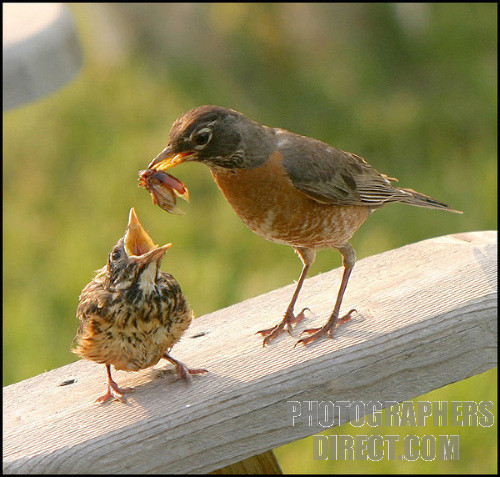Caring
caring


FORGET ME NOT
“Here is the little flower that is sure to follow the snowdrop, and bloom with it in the King's Garden,-sweet Forget-me,-not, emblem of faithfulness. Do you remember the seed from which comes "the beauty of holiness," of which the snowdrop teaches us? "Thou shalt have no other gods before Me." The Word, which follows this is the seed from which comes the beautiful flower of Faithfulness and constant remembrance of God.
"Thou shalt not make unto thee any graven image, nor any likeness of anything. . . . Thou shalt not bow down thyself to them nor serve them; for I the Lord thy God am a jealous God."
You know that people who love each other often give love-tokens one to another to keep the loved one constantly in mind. Have you not given little keepsakes to your friends? Something that they were to keep for your sake, and the sight of which was to remind them constantly of you, so that no one else should take your place in their heart. Perhaps the best thing, and the one most often given, is a likeness, an image of the loved one.
Now God wants to have and to keep always our whole hearts. He says He is "a jealous God." He knows what a sad thing it would be for us if we should choose to have any other God beside Him, so He to is jealous, for our sake, to keep our whole hearts to Himself.
And so that we may be constantly reminded of Him, He gives us for a keepsake and love-token a wonderful mirror, into which we may look and see the reflection of His glory and beauty. We cannot have an image of God; He is infinite, and it is not possible that His perfections can ever be fully known. But in this mirror we can catch gleams from the shining of His glory, we can behold as in a glass the glory of the Lord, and thus we may get some of the "light of the knowledge of the glory of God," as it shines from the face of Jesus Christ.
Are you not glad that you have such a mirror in which you may see something of the King in His beauty? Perhaps you did not know that He had given you this, and so you have never needed it for the purpose of seeing Him. Is that so? Then let me tell you at once what it is, so that you may begin now to use it to make you acquainted with Him.
"The means, therefore, which unto us is lent
Him to behold is on His works to look,
Which He hath made in beauty excellent,
And in the same, as in a brazen book,
To read enregistered in every nook
His goodness, which His beauty doth declare;
For all that's good is beautiful and fair.
"These unto all He daily does display,
And show Himself in the image of His grace,
As in a lookingglass, through which He may
Be seen of all His creatures, vile and base,
That are unable else to see His face,
His glorious face, which glistereth else so bright,
That the angels' selves cannot endure His sight."
-Spenser's "Hymn of Heavenly Beauty."
Do you want to see the King in His beauty? You could not now bear the sight of His full glory, but all of it that you can endure is reflected in the works of His great creation. There you may see His glory in the heavens, His smile in the glad sunshine, His power in the ocean and the mountains, His wisdom, beauty and faithfulness, His eternal power and Godhead, in all the things that He has made.
The mirror is not now so bright and clear as in the beginning when God first gave it to mankind, for sin has dimmed it, and clouded our eyes. Yet even now in it you may "behold your God," and so learn to know Him more and more, as you see Him by faith more and more clearly. And at last the veil that hides Him will be altogether withdrawn, and "thine eyes shall see the King in His beauty."
Who could look into the mirror, and upon the glory of the Lord, and then make an image, and worship the works of his own hands, the likeness of something that he had seen?--Not one. It is only when people look at all these things without seeing the glory of God reflected in them, that they begin to worship the things themselves, and make images of them.
There is something that always goes before the making of images that can be seen, and what that is Paul tells us in those words:-
"When they knew God, they glorified Him not as God, neither were thankful; but became vain in their imaginations." It was because of this that they "changed the-glory of the incorruptible God into an image made like to corruptible man, and to birds, and four-footed beasts, and creeping things."
The image must always be in the mind, before it is made so that it can be seen. But ah, how many there are who set up an image in the mind and heart, though these "vain imaginations" never take outward shape! Yet they are bowed down to and worshipped, just as much as the gods that the more ignorant heathen make.
But when we really see God, we shall love Him with our whole heart and mind. There is no room for any images in the King's Garden, for it is all to be filled with the reflection of His own loveliness.
Once the ark of God was carried into the house of Dagon, the graven image that the Philistines worshipped. Inside the ark were the tables of stone on which these words were written: "Thou shalt have no other gods before Me, Thou shalt not make auto thee any graven image." And before the power of this Word of God, Dagon fall down from his high place, and crumbled to pieces.
So when that same Word comes into our hearts, not on tables of stone, but as a living seed, a precious promise of God, with power to work out its own fulfillment in us, all vain imaginations will be cast down and rooted out, and the Lord alone will have the whole heart garden, and everything in it shall be but the reflection of His glorious beauty.
And among His fair flowers the faithful little Forget-me-not, will bloom. In this sweet little flower; as in every other, God's voice is speaking to you. He from whom all its beauty comes is, calling to you to keep Him always in remembrance, saying, "Forget-me-not!" Then is it not a precious little keepsake from the Lord, to keep Him in your mind?
And when this sweet flower of faithfulness to the one true God blooms ever in the King's Garden, keeping out every "vain imagination," through it the King's voice will be heard by those who see it there, and they, too will be reminded of their Creator as He calls to them through you,
"Forget-me-not!"
June 13, 1901 EJW, PTUK 379
